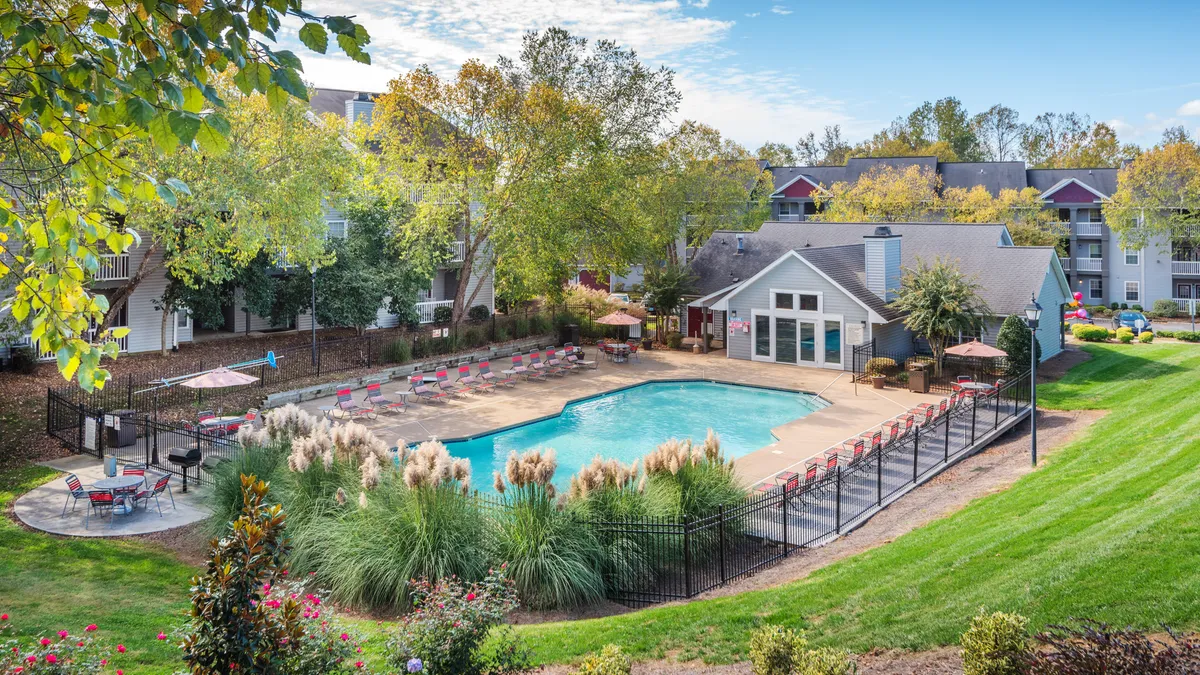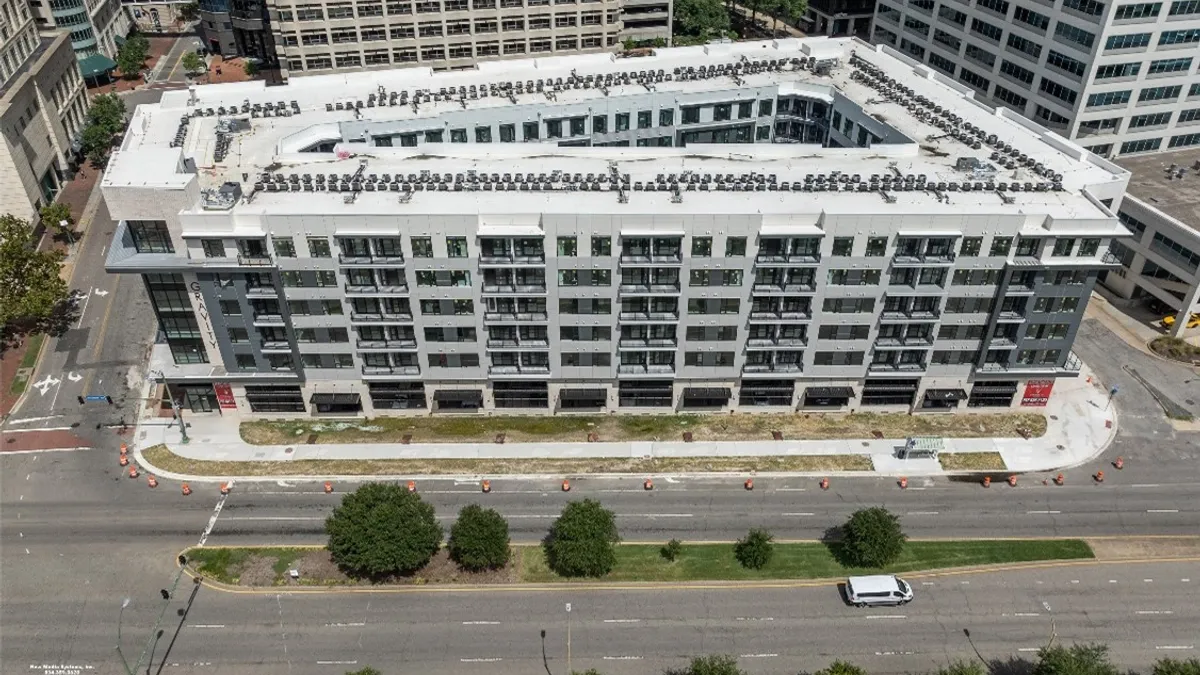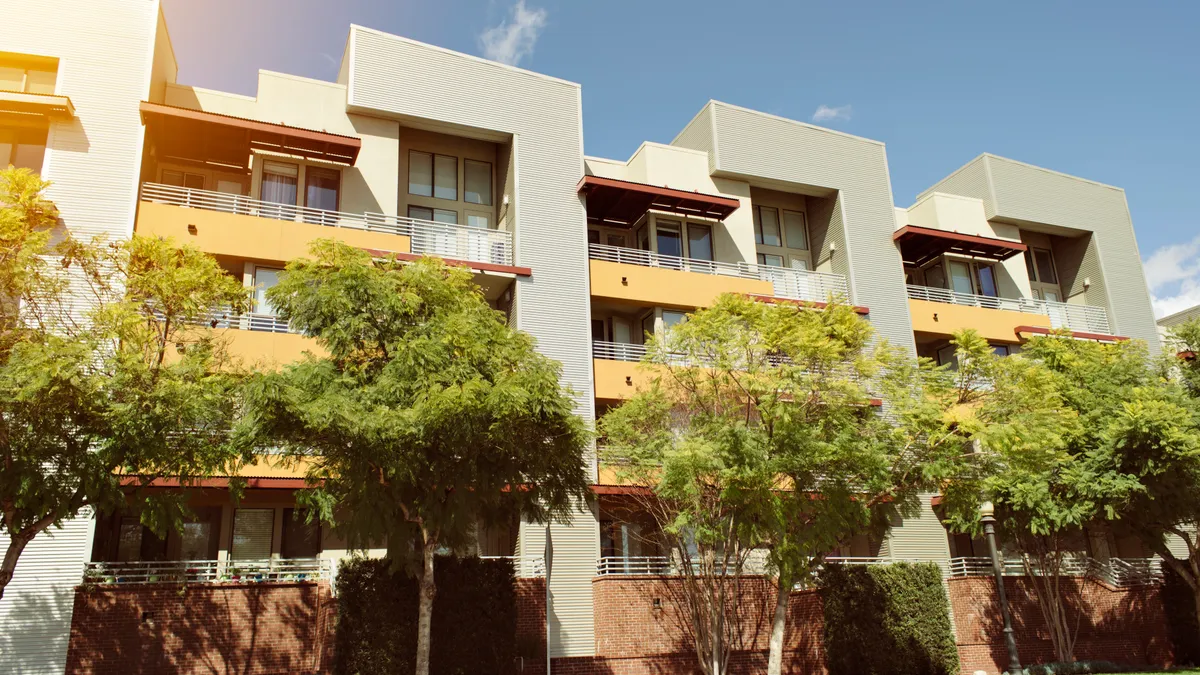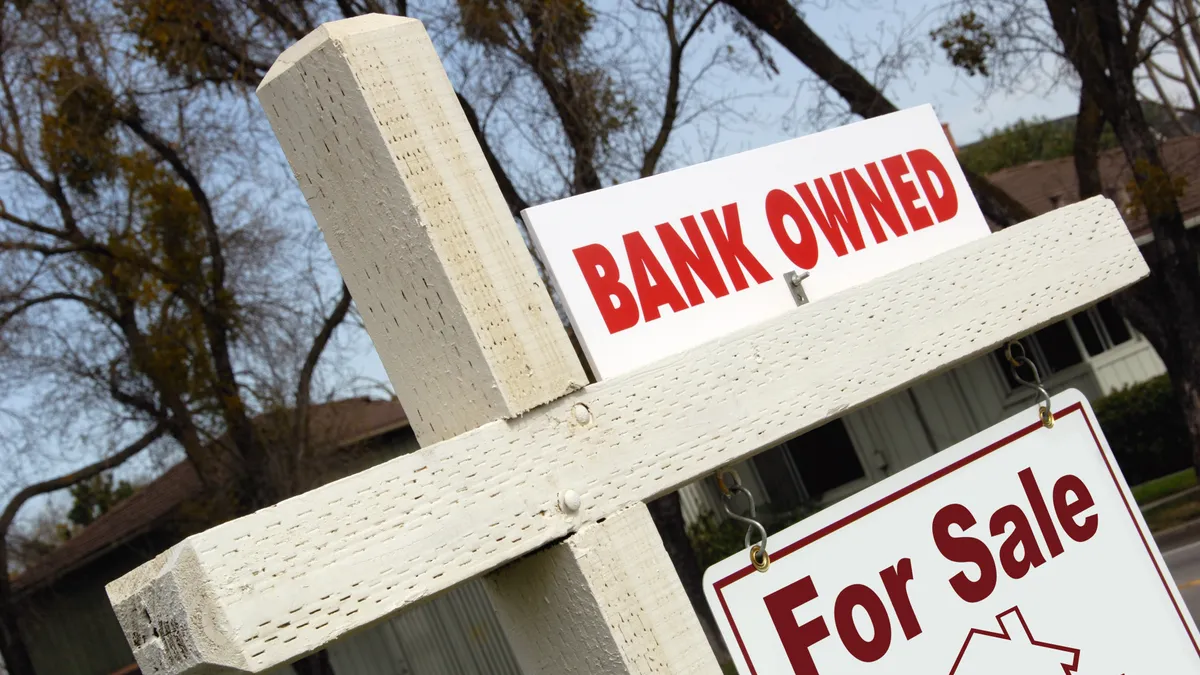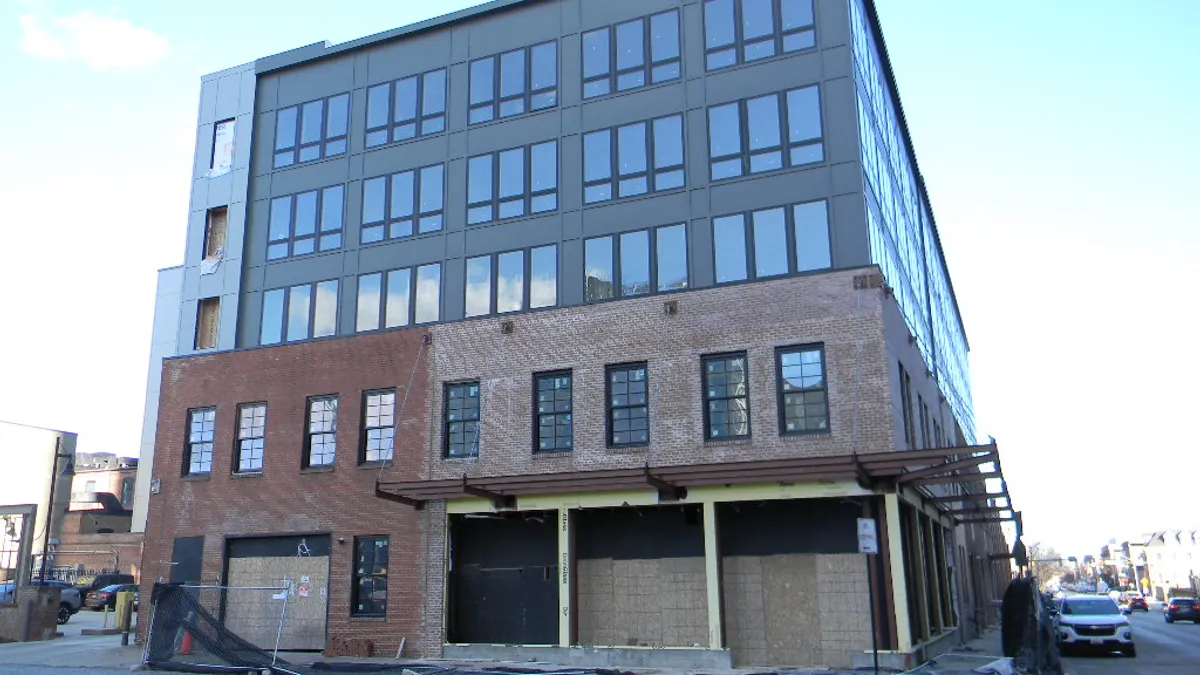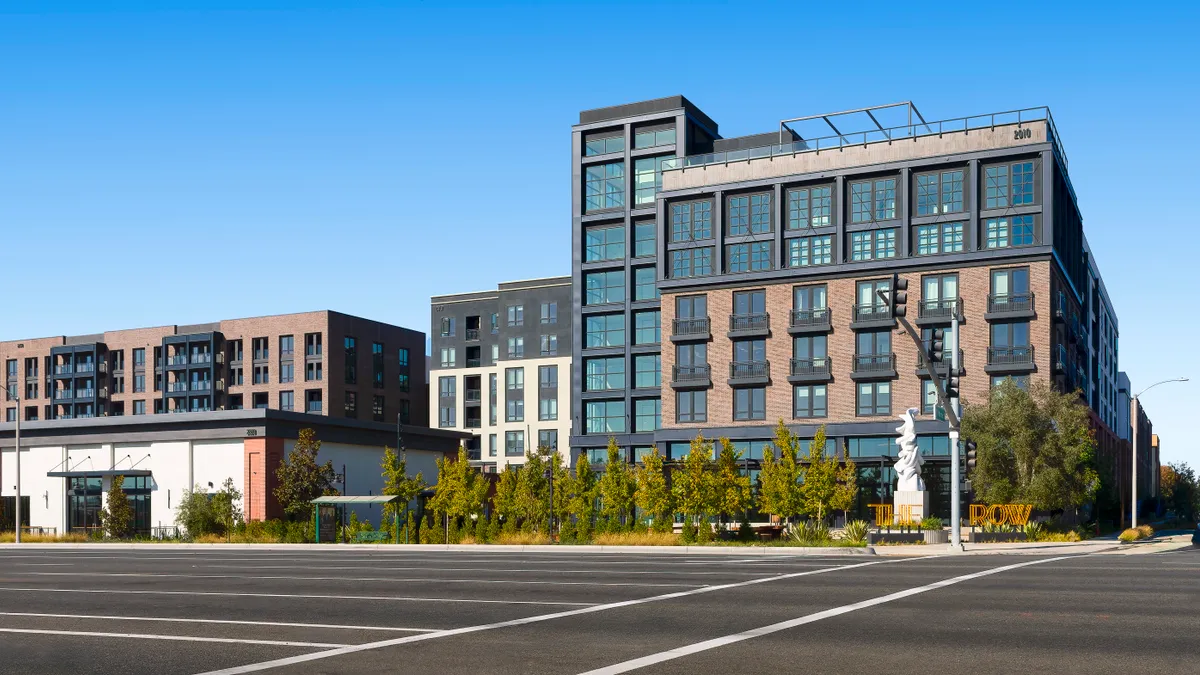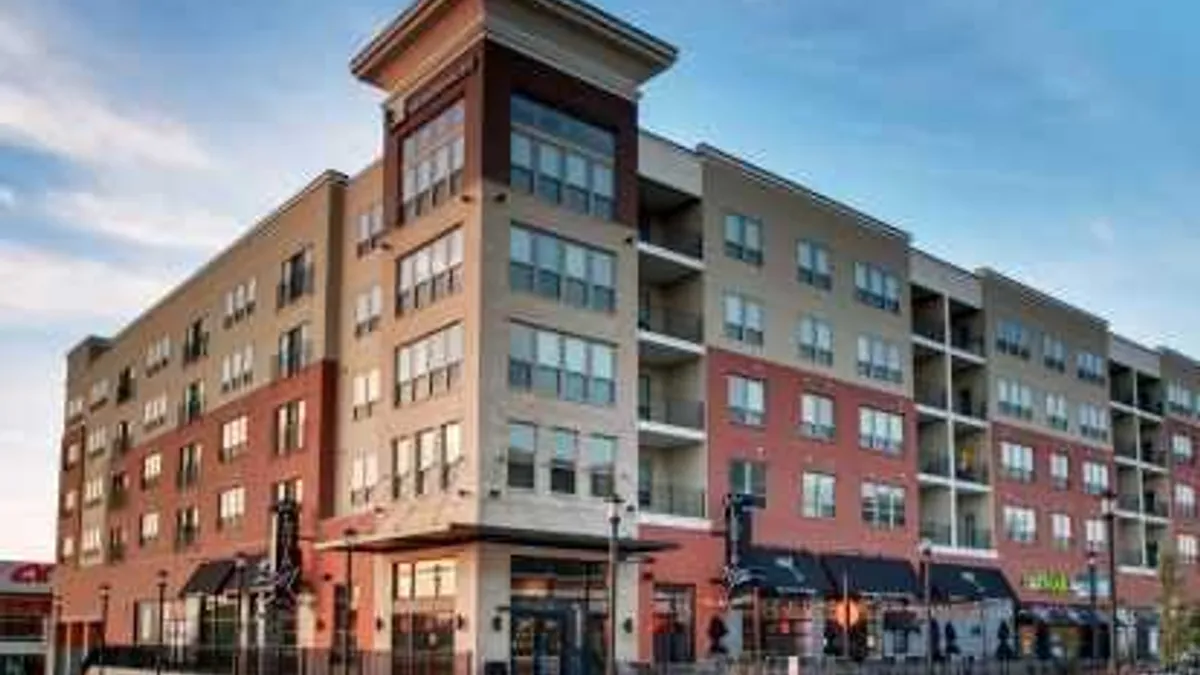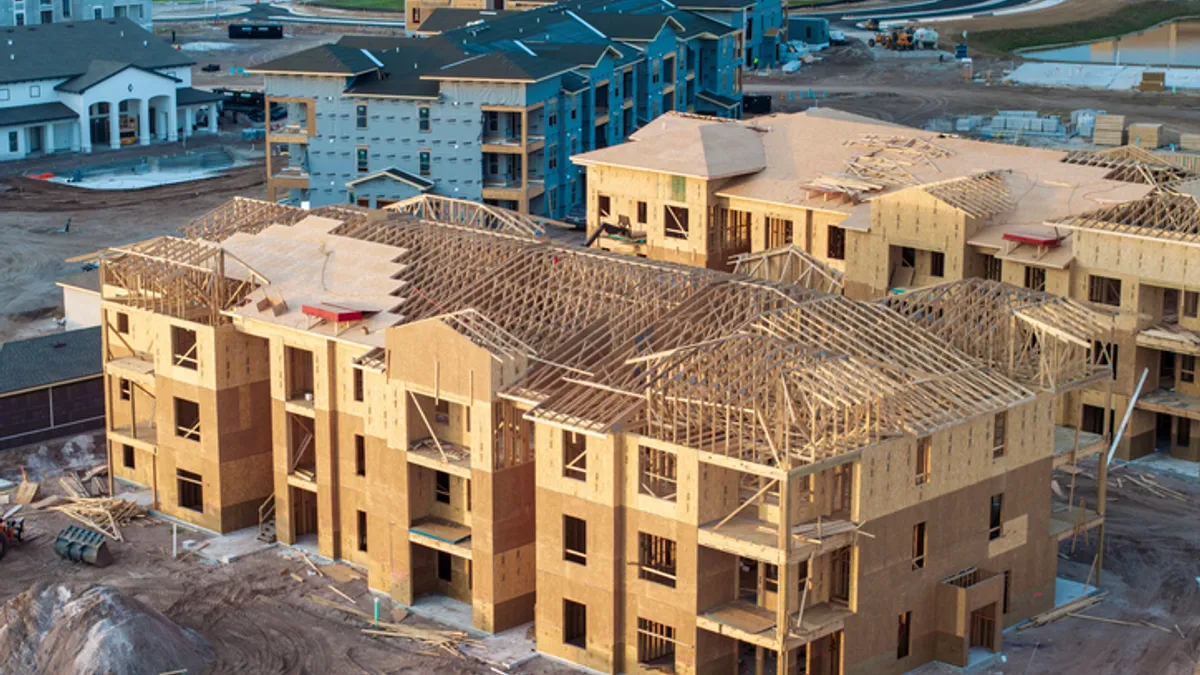The renovation side of the multifamily industry has felt the squeeze of volatile market conditions, including supply issues, inflationary pressures and, in some cases, scenarios where ground-up development may offer better returns.
However, demand for apartments remains high – even in the face of rapidly rising rents – and despite these struggles, renovators’ value-add strategies are holding strong, with a little adjustment here or and there.
Here’s how four multifamily firms are taking different approaches to their renovation strategies, including buying materials in advance and slowing the pace of upgrades.
Pump the brakes
Rents have risen at an accelerated pace at Washington, D.C.-based CWCapital Investment Management's acquired properties, even when renovations are not in progress, according to Gina Lubin, who leads the company’s equity platform as chief investment officer.
"We sold two properties that we closed on Nov. 30. We had done maybe half of the units," Lubin said. "And even when we slowed down the renovation pace when we were in the process of due diligence, and even between when we signed a contract and post-90 days… by the time we closed we had raised rents significantly, between 5% and 10%. And we weren’t even renovating at that point."
CWCapital Investment Management, a division of CWCapital with assets in secondary and tertiary U.S. markets, is maintaining a slower renovation pace across its entire portfolio, conducting only selective renovations rather than improving every unit that comes vacant. Lubin attributes this shift to rising costs.
"You have to be a little bit more flexible," she said. "In the last two years, a renovation that was maybe in the $5,000 to $6,000 range is now more like $8,000."
While this slower pace has insulated CWCapital against some of the pressures of material shortages, Lubin reports that the company has had to move to different products and suppliers when their specified products were not available. "You’ve got to be able to pivot," she said.
Plan ahead
New York City-based investor Ashcroft Capital is utilizing another strategy to maintain its ongoing value-add operations: buying materials well in advance.
Starting in early 2021, "we saw the price per unit that we typically spend on a multifamily investment increase by 20% just because of inflation and material costs," said Frank Roessler, Ashcroft Capital’s founder and CEO.
In response to these conditions, the company pivoted to bulk orders directly from suppliers, primarily in Asia, for almost all the products required in its renovations, with the exception of appliances.
A growing number of construction firms are utilizing similar tactics in order to meet their supply needs. In Ashcroft’s case, the company arranges the materials into "kits" as they arrive from overseas, with each kit containing the materials needed to renovate a single unit.
These kits are then shipped out to the investor’s multifamily renovation projects as they are needed, usually in packs of 20 to 40. Once they arrive, Ashcroft’s goal is to complete unit renovations in three weeks or less.
According to Roessler, this strategy has helped with timely material sourcing, as well as certainty on prices.
"We certainly were doing this before the pandemic, on a much smaller scale," Roessler said. "We weren't putting everything into kits like we are now and we weren't shipping things to Florida and Georgia. [But] I think we were on our way. All these issues really made us get our act in gear and accelerate the process into what it's become now."
While Roessler knows of some value-add companies turning to investments in ground-up multifamily development, he does not foresee Ashcroft Capital taking a similar approach, given the nature of the existing business. “I’m not saying it’s not a bad move, but we’re not in the business of making pizzas,” he said. "We can’t just pivot and be a new company tomorrow."
A new direction
While other value-add developers have stuck to their chosen path with some modifications, Waterton is taking a leap of faith.
Alongside its ongoing value-add operations, the Chicago-based property manager is expanding its reach into new multifamily development for the first time, executed through joint ventures with existing local and regional developers.
Waterton is focusing its new strategy on specific markets in the Southeast and Southwest, where supply is constrained, replacement costs are lower than renovation costs and potential rents create an attractive potential development yield. "Those new rents that new properties can attract are certainly offsetting the cost of buy-in prices and material prices," said Rick Hurd, chief investment officer at Waterton.
The first of Waterton’s joint development ventures will be with Tampa, Florida-based single-family rental asset operator Second Avenue Group. The firms intend to invest in existing single-family rentals and homes and communities in development.
"As we have seen the demand for housing increase and the price of apartments go up, we have seen an opportunity to get into new development," Hurd said. "We're seeing the pricing and the money you have to put into existing properties start to exceed the cost to develop new."
Back on track
Harbor Group, a global real estate investor and manager based in Norfolk, Virginia, had responded to the COVID-19 lockdowns by pausing renovations across its portfolio. "We wanted to focus on resident safety and resident retention," said Pete Petron, managing director and head of asset management at Harbor Group. "I think a lot of folks pursued that same strategy."
Toward the middle and latter half of 2020, as contractors were able to enter apartments and demand for upgraded units remained high, Harbor Group returned to its renovation strategy, scaling up operations over the course of the following year.
As of the end of 2021, operations are largely back to normal in terms of volume. The company's acquisition activity encompassed several large portfolios across the East Coast, including a $300 million portfolio of properties in the Southeast (including 200 Braehill in Winston-Salem, North Carolina, pictured above). While Harbor Group has met with some situational labor and supply chain issues, including availability of appliances and furniture, the company has been able to work through these issues, according to Petron.
Petron notes that demand for renovated apartments remains strong notwithstanding increases in price. But with lower margins available, the renovations that occur may be scaled back depending on market conditions.
"We've always tried to be thoughtful about the scope of the renovation that we're doing," he said. "...But at [these margins], because of supply chain and other things, we're choosing to perhaps not do as many as we would previously. So the downtime is shorter, and we're still able to get a really meaningful increase in our rents."



